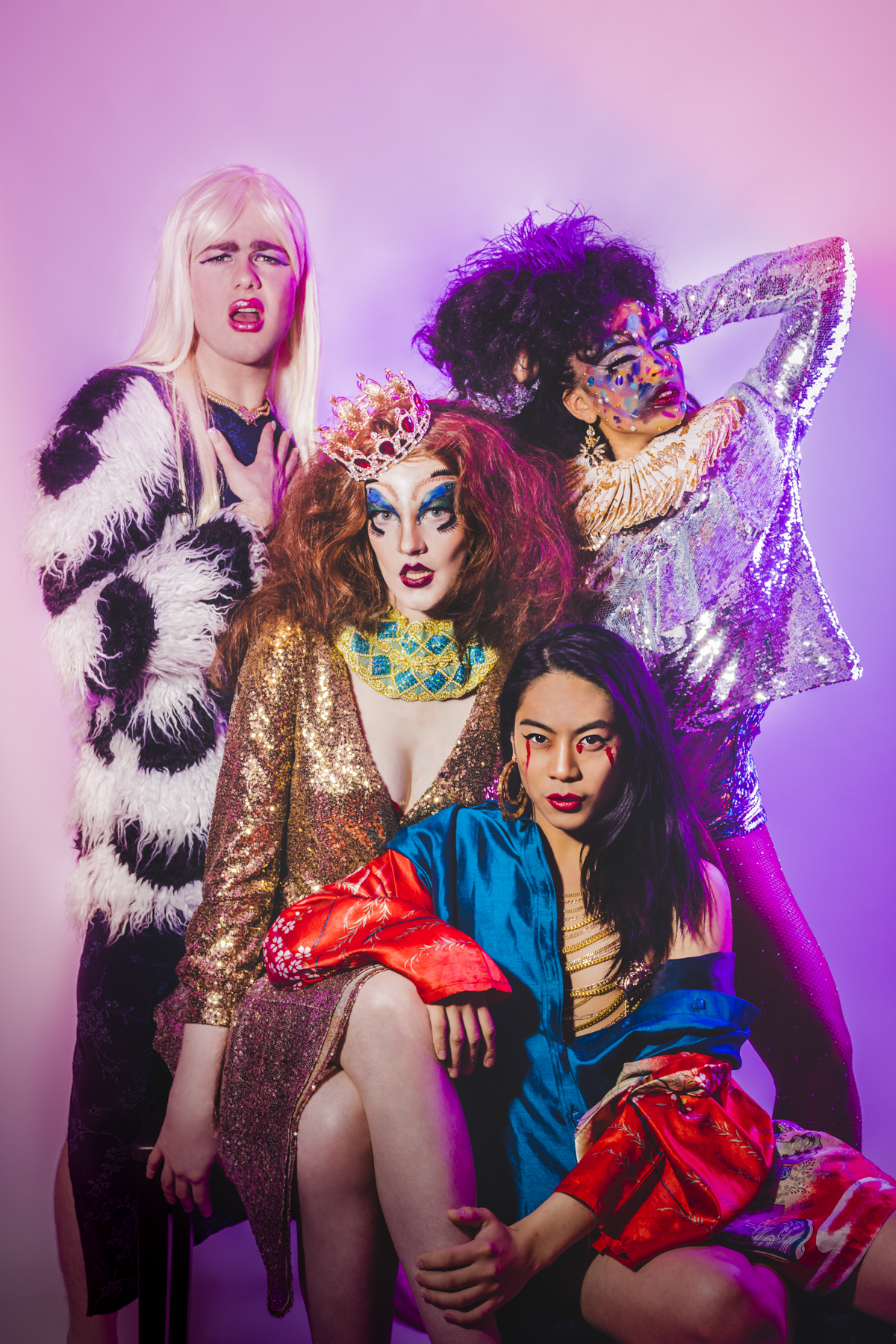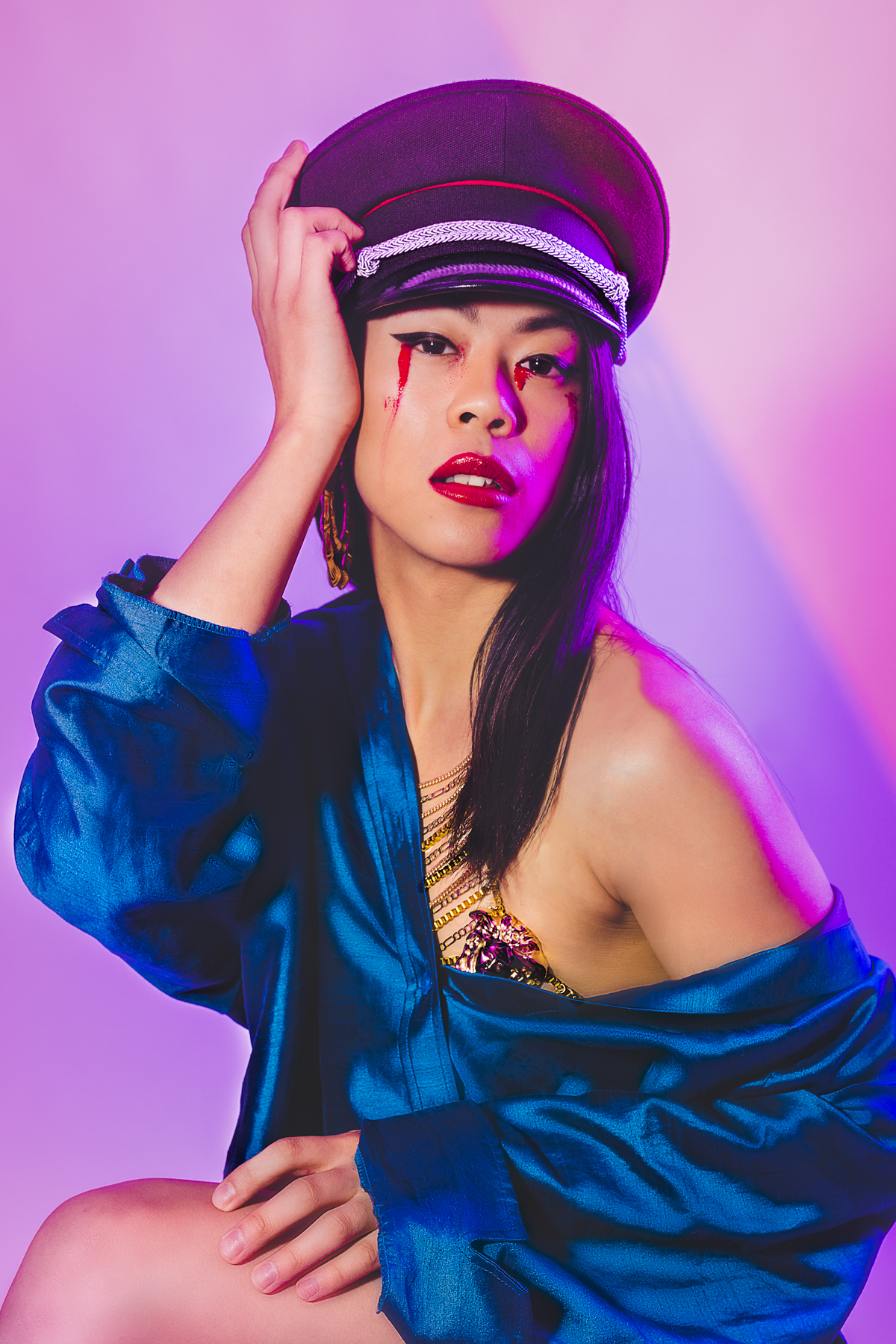5 Questions: Bailee-rose Farnham
by Leah Jing.
Bailee-rose Farnham is a dancer and actor. She moved to Melbourne to train full-time in dance, and fell in love with choreography. We speak to Bailee-rose about her role in Lou Wall's Drag Race, premiering at the 2018 Melbourne Fringe Festival.
Lou Wall's Drag Race: Faux queens, bio queens, female female impersonators—it’s time for a new Queen Bee to rule this cis-gendered monarchy of men. Everything you know about drag (after ten seasons of RuPaul’s you hungover-binged last Saturday) is about to get stabbed in the d*ck tuck by an all-inclusive, queer-not-just-gay, binary-busting, stabby stiletto.
Buy your tickets here.
No.1
Tell us about your role in Lou Wall’s Drag Race / how did you come to be involved?
I’m a performer in the show. Lou Wall found me through mutual friends—she saw my work on Instagram, messaged me and I said yes.
No. 2
Lou Wall’s Drag Race tells us—‘Everything you know about drag (after those ten seasons of RuPaul’s you hungover-binge-watched last Sat) is about to get stabbed in the eye by an intersectional, non-binary, stabby stiletto.’ I love this. How does the play work to accomplish this?
This is a devised show, so we all contribute to creating it as we go, deciding which elements of mainstream drag (the type popularised on RuPaul’s Drag Race) we want to poke fun at (with love, of course). Last week we riffed off Chicago, and at the end I put out an idea and Lou was like, “great, done, party” and I was like, cool. It’s great to be working on something that’s giving us all free range and in the room we start with the trust that any idea is a good idea to be played with.
As part of that process, the concept’s evolved too. We’re messing with the world of RuPaul’s Drag Race: instead of pitting the queens against each other, we’re using drag to try to literally save the world from everything that’s terrible: the patriarchy, environmental disaster, racism...
We also don’t have a single cis, white male drag queen in our 5-person cast. We’re all pretty split somewhere along the gender spectrum, and only 2/5 of us are white, so the content is being developed through a very intersectional lens. We’re all aware of the assumptions people will bring to us before they even see the show, so we’re messing with all that stuff about identity as well.
We’re messing with the world of RuPaul’s Drag Race: instead of pitting the queens against each other, we’re using drag to try to literally save the world from everything that’s terrible: the patriarchy, environmental disaster, racism...
No. 3
As an Asian-Australian trans artist, you use art as your specific mode of expression—can you speak to this choice? Especially in a world which often works to reject the multitude of intersections that you encompass.
I think art can break down a lot of barriers and serve as a bridge between the conservatives and non-conservatives. Art is so cathartic and entertaining, and a great way of making a political statement. As a dancer, it’s how I can communicate without having to say anything because I have anxiety around public speaking.
My performances work to dismantle the misogyny behind sex and the feeling that you don’t own your body. Men and male-identified people have this free-reign of “tapping arse” or getting laid, and as a woman, as a trans woman, as a femme, I feel like we’re belittled as sexual beings. A lot of my experiences have been of men feeling like they own my body, and that’s mirrored in the performing world, where I’ve felt like men control how I should look, feel and perform without ever asking me. I took almost two years off dance after I graduated because it ruined my soul.
It’s assumed that because of who I am as a femme, Filipino-Australian trans woman that I would want to present myself sexually. I’m perfectly happy to be sexy and exude sexual energy – but only if I want to. Whether it’s sex, acting, anything in life, it should be more than a one-way street.
I also want to dissect the exoticism of Asian people and ethnic minorities. I’m working to wrap my head around being in an inter-racial relationship – a lot of my last partners were white cis men and it’s taken me some time to re-evaluate whether that’s my own internalised racism and that has me thinking a lot about how I want to perform, what I want to talk about.
Last year, I worked on ABC and created a piece on diversity within the dance community. It’s very white and very cis. I cast a pas de trois which is three dancers and there were two white cis men and white cis woman. I added myself in the last part, turning it into a pas de quatre, as a symbol for breaking this binary apart, letting the audience see that there’s more potential than what we currently see, which is currently very white and not a clear representation of the real world.
No. 4
What would you like the audience to take away from Lou Wall’s Drag Race?
I want the audience to see what drag and performance really is – not what we see in mainstream media and television. I feel like what their idea of what drag is is RuPaul’s Drag Race but there’s so much more out there.
Drag came from men dressing up as women because women weren’t allowed to act onstage: now we have women impersonating men and non-binary people just putting on whatever the fuck they want because they choose to. We’re not fully open to the extent of drag because it’s been portrayed as something only cis men can do. But drag is so much more than big wigs and false eyelashes and contour.
Drag is art; drag is life.
No. 5
What are other five performances on your list to see for the Melbourne Fringe?
I’m excited for:
- 24 Hour Dance Project
- Matriarch
- Big House Dreaming
- GINGZILLA: Glamonster VS The World
- Cultural Renegades
Questions by Leah Jing
Photographs by Alexis Desaulniers-Lea



